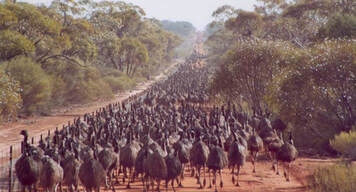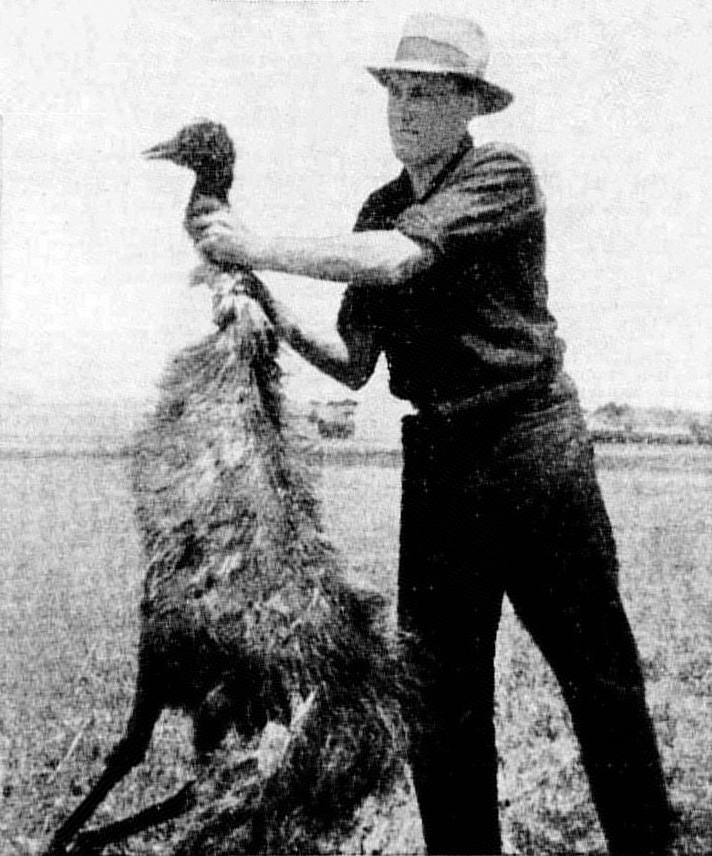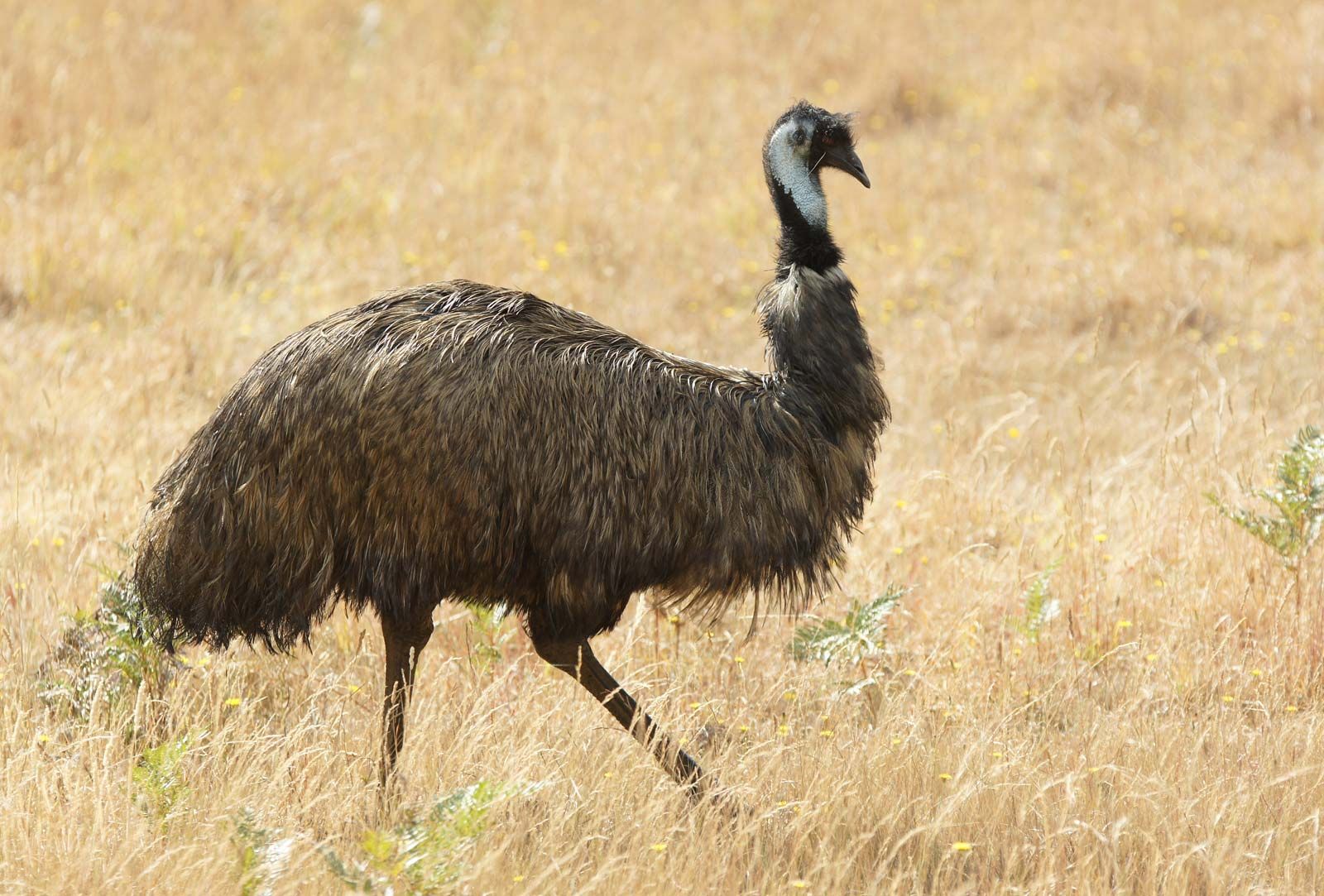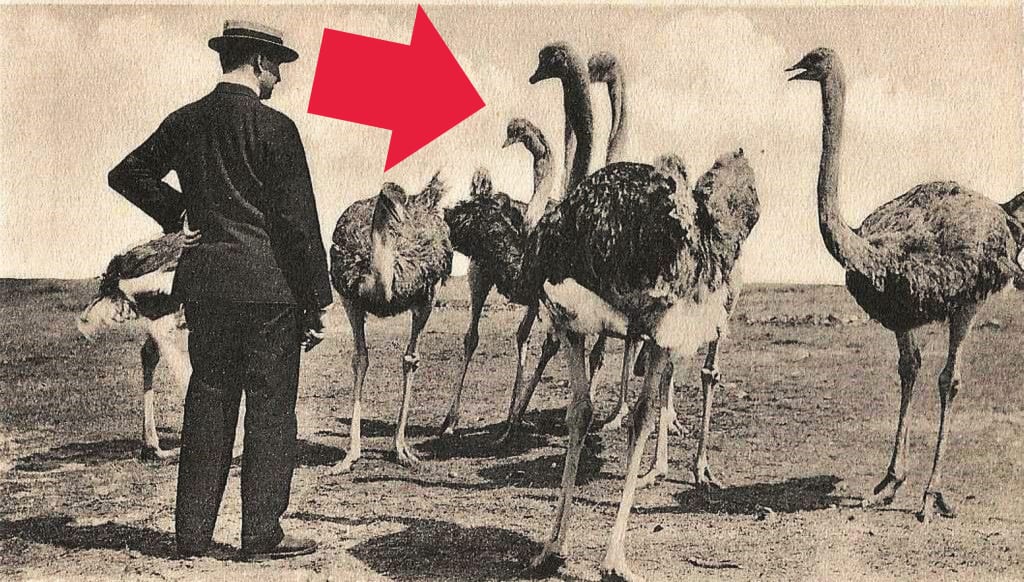In 1932, the Australian government faced an unusual enemy – thousands of emus invading Western Australian farmland. Following World War I, returning soldiers who had taken up farming found their crops under siege from these large flightless birds, whose population had exploded dramatically.

Credit: Footnoting History
The situation became so dire that the government launched a military campaign, deploying soldiers armed with machine guns. Their mission? To cull approximately 20,000 emus that were devastating crops across the region. The operation, which began in November 1932, would soon become one of Australia’s most peculiar military endeavors.

Credit: Wikipedia
The initial encounters revealed the remarkable resilience of these birds. The emus demonstrated unexpected tactical prowess, scattering into small groups when approached and proving incredibly difficult to target. Soldiers reported needing roughly 10 rounds of ammunition to take down a single emu, making the operation both costly and inefficient.

Credit: Britannica
As weeks passed, the military’s frustration grew. The birds seemed to possess an almost supernatural ability to absorb bullets, with some continuing to run even after being hit multiple times. The campaign’s ineffectiveness led to mounting embarrassment for the military, eventually forcing them to withdraw.

Credit: Vocal Media
Today, the Great Emu War stands as a fascinating chapter in Australia’s ecological and cultural history. It serves as a humbling reminder of nature’s unpredictability and the limitations of conventional military tactics against wildlife. The episode has since become a source of amusement and reflection, highlighting the unique challenges of wildlife management and human intervention in natural ecosystems.
Categories: Australian History, Environmental History, Military History, War History, Wildlife Management
Tags: Australian History, Emu War, Environmental History, Military History, Unusual Wars, Wildlife Management
Religion: Not applicable
Country of Origin: Australia
Topic: Historical Events
Ethnicity: Not Applicable

